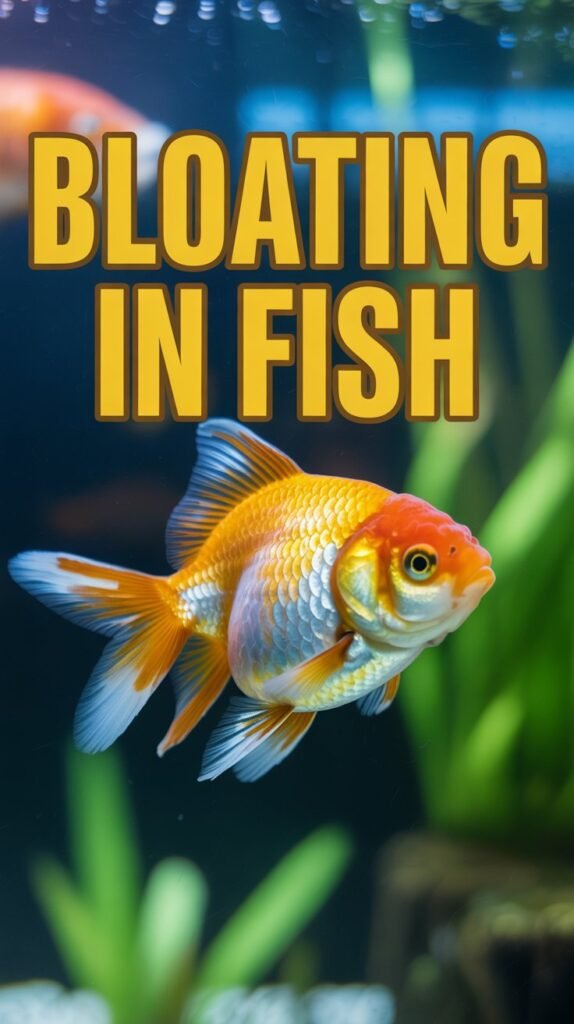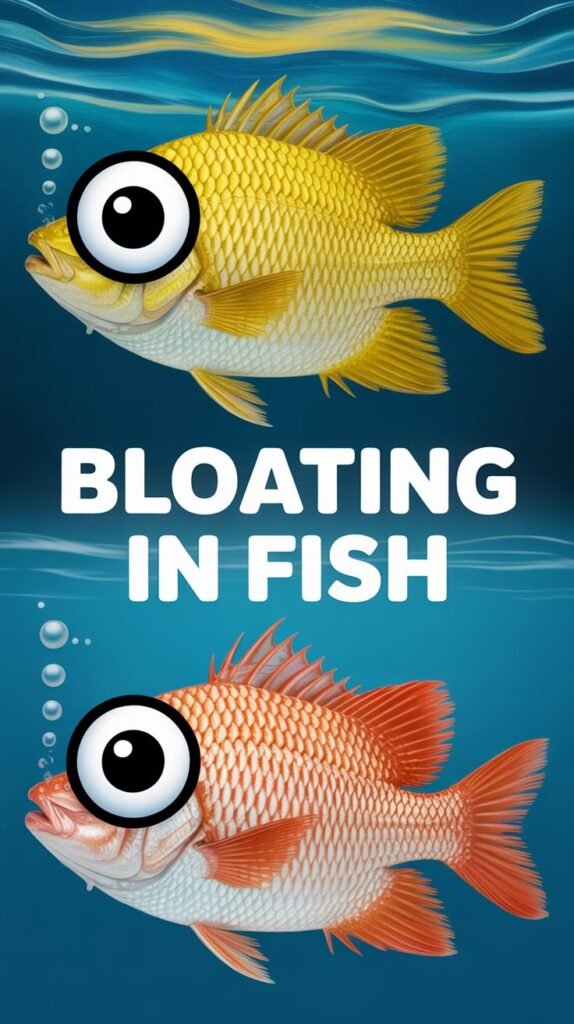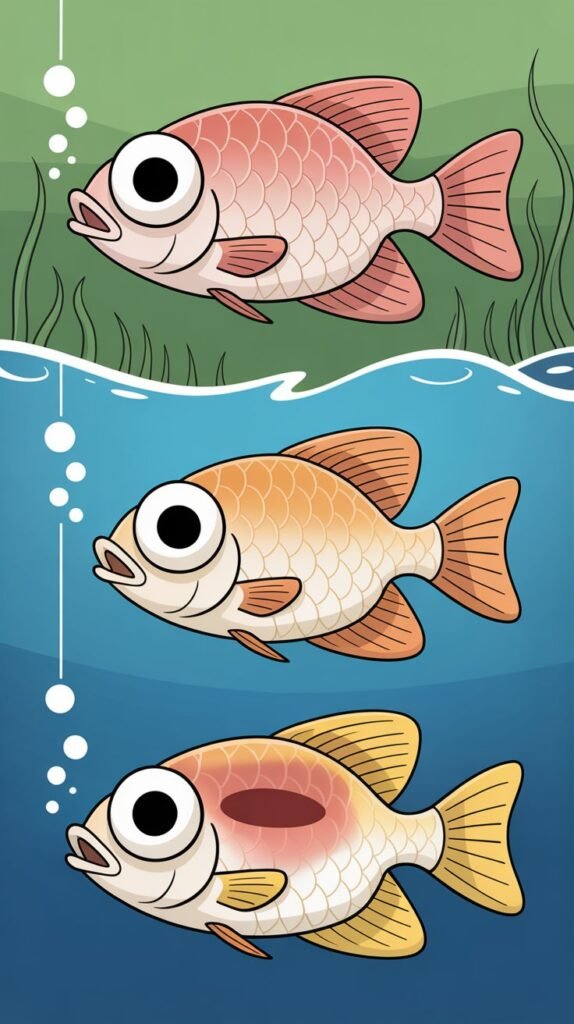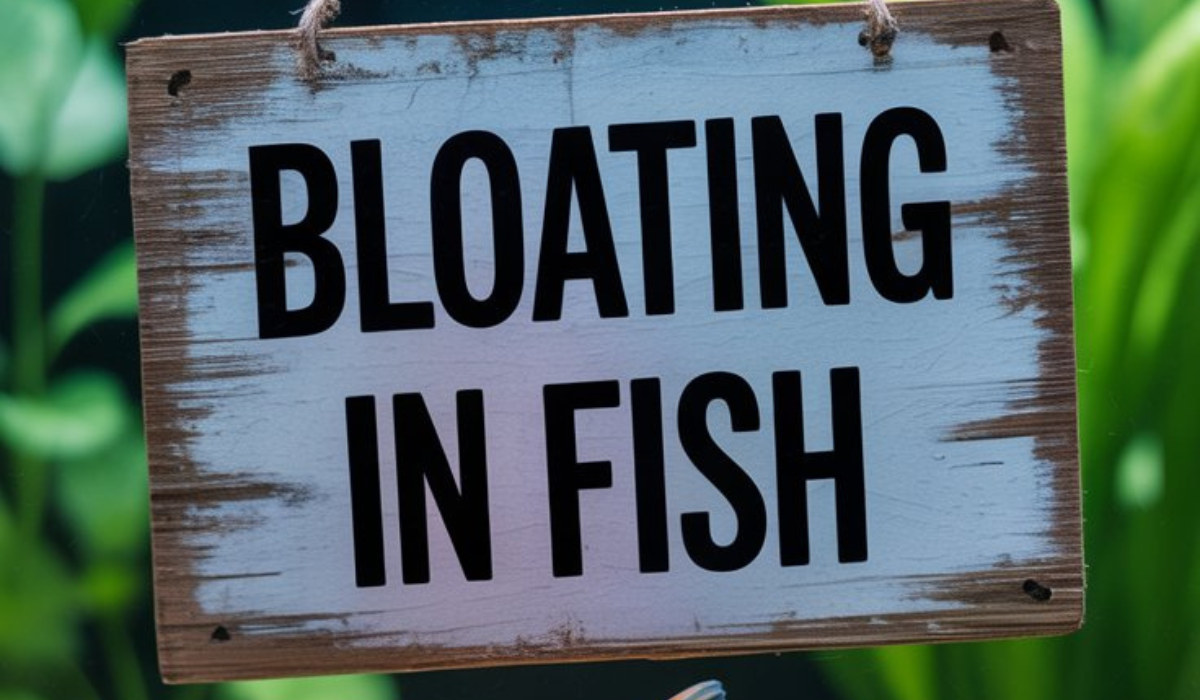Fishkeeping is a rewarding hobby that brings beauty and tranquility into homes and offices, but it also comes with the responsibility of maintaining fish health. Among the various health problems that aquarium fish may experience, bloating in fish is one of the most common and concerning. Bloating is not a disease itself but a symptom of underlying conditions that can range from dietary issues to bacterial or parasitic infections. For aquarium enthusiasts, breeders, and hobbyists, understanding bloating in fish is essential for early detection, treatment, and prevention.
This article provides an in-depth guide to bloating in fish, covering causes, symptoms, treatment methods, and preventive measures. By the end, you’ll have the knowledge needed to safeguard your fish from this condition and maintain a thriving aquarium.
What is Bloating in Fish?
Bloating in fish refers to an abnormal swelling of the abdomen, making the fish appear puffed-up or larger than usual. Unlike natural belly fullness after feeding, bloating is usually prolonged and can indicate serious internal problems. In mild cases, bloating may resolve on its own, but in severe instances, it can be fatal if not treated promptly.

Bloating often disrupts normal bodily functions, such as digestion, buoyancy control, and overall energy levels. For fishkeepers, recognizing the difference between temporary fullness and true bloating is crucial.
Common Causes of Bloating in Fish
Several factors can lead to bloating, and identifying the root cause is the first step toward effective treatment.
1. Overfeeding and Improper Diet
Overfeeding is the most common cause of bloating in aquarium fish. When fish consume more food than they can digest, uneaten food ferments in their gut, leading to constipation and swelling. Diets rich in low-quality flakes, excessive protein, or foods that expand in water (like dry pellets) can also contribute.
2. Constipation
Constipation is often linked to bloating. Fish with constipation may struggle to pass waste, resulting in a swollen belly. Lack of dietary fiber, poor water quality, and overfeeding dry foods are major triggers.
3. Dropsy
Dropsy is a serious condition caused by internal bacterial infections, usually associated with poor water conditions or weakened immunity. It leads to fluid retention in the body cavity, making the fish look bloated. One telltale sign of dropsy is “pineconing,” where scales protrude outward due to internal swelling.
4. Parasitic Infections
Internal parasites such as worms or protozoa can damage the digestive system and cause bloating. Fish infected with parasites may show weight loss despite a swollen belly.
5. Organ Failure
Kidney or liver failure may cause bloating as the fish loses its ability to regulate internal fluids. This is often age-related or a result of prolonged exposure to toxins.
6. Egg-Binding in Females
Female fish may appear bloated when they are carrying eggs. However, if the eggs are not released, it can lead to a condition known as egg-binding, which may be life-threatening.
7. Poor Water Quality
High levels of ammonia, nitrites, or nitrates weaken fish immune systems and make them more susceptible to infections and digestive issues.
Symptoms of Bloating in Fish
Identifying bloating early is essential for saving your fish. Here are the key symptoms:
- Noticeable swelling of the abdomen
- Loss of appetite or refusal to eat
- Lethargy and reduced swimming activity
- Erratic swimming or difficulty maintaining balance
- Scales sticking out (pinecone appearance) in severe cases
- Stringy or absent feces
- Breathing difficulties when bloating compresses internal organs
Observing fish behavior daily helps in detecting these signs early, which increases the chances of successful treatment.
Diagnosing the Cause of Bloating

Since bloating can result from multiple factors, diagnosing the exact cause is important before treatment. Consider the following steps:
- Check Feeding Practices – Has the fish been overfed recently, or given unsuitable foods?
- Examine Tank Conditions – Test water for ammonia, nitrite, nitrate, pH, and hardness. Poor water parameters are a major culprit.
- Observe Other Fish – If multiple fish are affected, it could indicate a contagious infection or water quality issue.
- Look for Specific Symptoms – Pineconing usually indicates dropsy, while visible worms in feces suggest parasites.
- Consider Fish Species and Gender – Female livebearers often show natural bloating when pregnant.
By combining these observations, fishkeepers can narrow down the potential cause and take appropriate action.
Treatment for Bloating in Fish
The treatment of bloating depends on the underlying cause. Below are some proven methods:
1. For Overfeeding and Constipation
- Fasting: Stop feeding the fish for 24–48 hours to allow their digestive system to clear.
- High-Fiber Foods: Feed boiled, peeled peas or high-quality daphnia to help relieve constipation.
- Soak Dry Foods: Pre-soak flakes or pellets before feeding to prevent expansion inside the fish’s gut.
2. For Dropsy
- Isolate the Fish: Move the affected fish to a hospital tank to prevent spreading.
- Improve Water Quality: Perform partial water changes and maintain pristine tank conditions.
- Antibiotic Treatment: Use antibacterial medications such as kanamycin or erythromycin.
- Epsom Salt Bath: Add 1–3 teaspoons of Epsom salt per 5 gallons of water to reduce fluid retention.
3. For Parasitic Infections
- Anti-Parasitic Medications: Use metronidazole, praziquantel, or medicated foods designed to eliminate internal parasites.
- Maintain Quarantine: Keep infected fish separate until treatment is complete.
4. For Egg-Binding
- Stress Reduction: Keep female fish in a calm, separate environment.
- Temperature Adjustment: Slightly raising the water temperature may stimulate spawning.
- Veterinary Assistance: In severe cases, professional intervention may be needed.
5. For Organ Failure
Organ failure has limited treatment options. Focus should be on maintaining excellent water quality, reducing stress, and providing a balanced diet.
Preventing Bloating in Fish
Prevention is always better than cure. Here are preventive measures every fishkeeper should follow:
- Balanced Diet – Feed a varied diet including high-quality flakes, pellets, frozen, and live foods.
- Avoid Overfeeding – Feed only what fish can consume in 2–3 minutes, once or twice daily.
- Maintain Water Quality – Regularly test and change aquarium water to prevent toxic buildup.
- Quarantine New Fish – Always isolate new fish before adding them to the main tank.
- Regular Observation – Monitor fish daily for unusual behavior or swelling.
- Tank Hygiene – Clean filters, gravel, and decorations regularly to avoid bacterial growth.
- Adequate Tank Size – Overcrowding stresses fish and increases disease risk.
Species More Prone to Bloating

Some species are more susceptible to bloating than others:
- Goldfish – Prone due to their sensitive digestive systems and tendency to overeat.
- Betta Fish – Small stomach size makes them vulnerable to constipation.
- Guppies and Mollies – Commonly affected by dropsy and parasites.
- Cichlids – Susceptible to “Malawi Bloat,” a condition caused by protozoa or poor diet.
Being aware of species-specific risks helps fishkeepers take extra precautions.
Long-Term Impact of Bloating in Fish
If left untreated, bloating can cause severe internal damage and eventual death. Chronic bloating reduces the fish’s quality of life, affecting swimming ability, feeding, and breeding. For community tanks, one bloated fish can also spread infections to others if the root cause is bacterial or parasitic.
Long-term management involves maintaining a healthy environment, minimizing stress, and ensuring dietary variety.
Frequently Asked Questions (FAQs)
Q1: How do I know if my fish is bloated or just full after eating?
A fish that is simply full will return to normal size within a few hours after feeding, while bloating persists and is often accompanied by other symptoms like lethargy or loss of appetite.
Q2: Can bloating kill fish?
Yes, if left untreated, bloating can lead to organ damage, infections, or death, especially in cases of dropsy or parasite-related bloating.
Q3: Is bloating contagious among fish?
Bloating itself is not contagious, but if caused by bacterial or parasitic infections, it can spread to other fish in the tank.
Q4: Can I use home remedies to treat bloating?
Yes, fasting and feeding peas are common home remedies for mild constipation-related bloating. However, severe cases require medications.
Q5: How can I prevent my goldfish from bloating?
Avoid overfeeding, provide high-fiber foods, and maintain excellent water quality. Goldfish benefit from vegetables like peas and spinach.
Q6: What is Malawi Bloat in cichlids?
Malawi Bloat is a disease common in African cichlids, caused by poor diet, protozoa, or stress. It leads to abdominal swelling, rapid breathing, and eventual death if untreated.
Q7: Should I isolate a bloated fish?
Yes, isolating the fish in a hospital tank helps prevent potential spread of infection and allows for targeted treatment.

